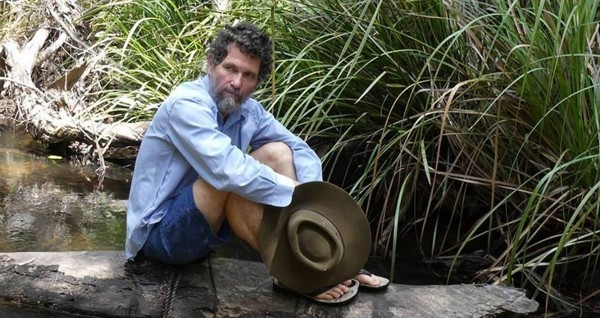
Professor of Physics Peter Ridd
James Cook University sacked Professor Ridd because of misconduct. Professor Ridd asked the Federal Circuit Court whether his actions or the decision of the university to sack him were unlawful. The Court’s decision, delivered on 16 April, was that the 17 findings made by the University, the two speech directions, the five confidentiality directions, the no satire direction, the censure and the final censure given by the University and the termination of employment of Professor Ridd by the University were all unlawful. He had done nothing wrong.
What follows down to the horizontal line are extracts from the judge’s decision.
What the judge says is inspiring
It is only when behaviour is not covered by cl.14, that the Code of Conduct can apply. Clause 14 means that it is the right of Professor Ridd to say what he has said in any manner that he likes so long as he does not contravene the sanctions embedded in cl.14. That is at the heart of intellectual freedom.
Judge Vasta’s next paragraph defines the fulfilment, prosperity, continual advance and global attraction of western civilisation:
“That is why intellectual freedom is so important. It allows academics to express their opinions without fear of reprisals. It allows a Charles Darwin to break free of the constraints of creationism. It allows an Albert Einstein to break free of the constraints of Newtonian physics. It allows the human race to question conventional wisdom in the never-ending search for knowledge and truth. And that, at its core, is what higher learning is about. To suggest otherwise is to ignore why universities were created and why critically focussed academics remain central to all that university teaching claims to offer.
It is only when behaviour is not covered by cl.14, that the Code of Conduct can apply. Clause 14 means that it is the right of Professor Ridd to say what he has said in any manner that he likes so long as he does not contravene the sanctions embedded in cl.14. That is at the heart of intellectual freedom.
Trial was not about climate change
That is why intellectual freedom is so important. It allows academics to express their opinions without fear of reprisals. It allows a Charles Darwin to break free of the constraints of creationism. It allows an Albert Einstein to break free of the constraints of Newtonian physics. It allows the human race to question conventional wisdom in the never-ending search for knowledge and truth. And that, at its core, is what higher learning is about. To suggest otherwise is to ignore why universities were created and why critically focussed academics remain central to all that university teaching claims to offer.
Some have thought that this trial was about freedom of speech and intellectual freedom. Others have thought that this trial was about the manner in which academics should conduct themselves. Some observers may have thought that this trial was about the use of non-offensive words when promulgating scientific ideas. Media reports have considered that this trial was about silencing persons with controversial or unpopular views.
Though many of those issues were canvased and discussed throughout the hearing of this matter, this trial was about none of the above. Rather, this trial was purely and simply about the proper construction of a clause in an Enterprise Agreement. Whilst the Court acknowledges that there may be consequences that touch upon these other issues because of the Court’s construction of that clause, none of those consequences can play any part in the determination of the proper construction of that clause.
It was not about intellectual freedom, just a clause about it
The clause in question is cl.14 of the James Cook University Enterprise Agreement. It is headed “Intellectual Freedom”. It, and it alone, is the focus of this judgement.
At its core, intellectual freedom mandates that academics should express their opinions openly and honestly, while inviting scrutiny and debate about those ideas. Unless opinions are expressed in this way, the growth and expression of ideas will be stifled and new realms of thinking will cease to be explored. That will lead to intellectual and social stagnation and a uniformity of thought which is an anathema to the concept of higher learning and social progress.
Intellectual freedom allows academics to challenge the status quo and encourage critical analysis. History tells of many people who did so.
During the last 160 years, arguably the two most prominent scientists/academics to challenge the status quo have been Charles Darwin and Albert Einstein. The ideas brought forth by both of these men were extremely controversial and offended several of their academic peers as well as many others in the greater society. That is how it should be and without intellectual freedom, the world would have been denied the benefit of ground-breaking thought and intellectual risk taking of the sort that encourages innovation and other scholastic enquiries.
There is great power in intellectual freedom. But with great power there must also come great responsibility. There must, at times, be some degree of restraint so that there is no descent into anarchy. That is a fine balance and one that has challenged legal thinkers both past and present. And that, in turn, is why there is often an uneasy tension between those responsible for the administration of an institution of higher learning and those responsible for promulgating the ideas that give the institution their raison d’etre.
…
The fundamental error made by the University is one that pervades their conduct throughout the whole of their interaction with Professor Ridd.
The University has assumed that the Code of Conduct takes precedence over cl.14. That is why there is no reference to cl.14 in any of the reasons given for the findings.
University played the man not the ball
It is easy to understand why this fundamental error has been made. If one truly believes that the Code of Conduct is the lens through which all behaviour must be viewed, then cl.14 is simply superfluous and can be ignored. But this is not the reality of the situation. It is actually cl.14 that is the lens through which the behaviour of Professor Ridd must be viewed.
To use the vernacular, the University has “played the man and not the ball”. Incredibly, the University has not understood the whole concept of intellectual freedom. In the search for truth, it is an unfortunate consequence that some people may feel denigrated, offended, hurt or upset. It may not always be possible to act collegiately when diametrically opposed views clash in the search for truth.
Many aspects of the Code of Conduct cannot sit with the concept of intellectual freedom and certainly contravene cl.14. For example, the Code speaks of the need to “value academic freedom, and enquire, examine, criticise and challenge in the collegial and academic spirit of the search for knowledge, understanding and truth”. The University has denounced Professor Ridd because his enquiry, examination, criticism and challenge was not, in their view, done in the collegial and academic spirit. But there is no need for such enquiry, examination, criticism or challenge to be done that way under the rights conferred upon Professor Ridd by cl.14.
University “cherry-picked” writings of Professor Ridd
The University have been at pains to say that it is not what Professor Ridd has said, but rather the manner in which he has said it, that is the underlying reason for the censure, the final censure and the termination. But the University has consistently overlooked the whole of what has been written. They have concentrated on small, almost incidental parts of what has been said and then used the Code of Conduct to pass judgement on those small parts, with the intention that the flow on effect of that judgement would impugn the whole of what Professor Ridd has written.
The Code of Conduct is subordinate to cl.14 of the EA. And what is said by Professor Ridd must always be looked at in its whole context. The University have continually “cherry-picked” portions of the writings of Professor Ridd and said “that is not the exercise of intellectual freedom”. But it is the whole of what is written that must be looked at rather than excerpts taken out of context.
If the whole of what is said is objectively an exercise of intellectual freedom, then the protections of cl.14 apply. As was said earlier, in the search for truth, some people may be offended, even insulted. Sometimes, it is just not possible to be “collegial” in the search for truth. But if what is occurring is in furtherance of intellectual freedom, then cl.14 protects it.
It is only when behaviour is not covered by cl.14, that the Code of Conduct can apply. Clause 14 means that it is the right of Professor Ridd to say what he has said in any manner that he likes so long as he does not contravene the sanctions embedded in cl.14. That is at the heart of intellectual freedom.
That is why intellectual freedom is so important. It allows academics to express their opinions without fear of reprisals. It allows a Charles Darwin to break free of the constraints of creationism. It allows an Albert Einstein to break free of the constraints of Newtonian physics. It allows the human race to question conventional wisdom in the never-ending search for knowledge and truth. And that, at its core, is what higher learning is about. To suggest otherwise is to ignore why universities were created and why critically focussed academics remain central to all that university teaching claims to offer.
But is Judge Vasta out of line?
I quickly discovered a story from last month headed “Law Council flags inquiry on Judge Vasta“ that says:
Judge Salvatore Vasta faces the prospect of a parliamentary inquiry on his fitness to remain on the bench, with the Law Council saying it was considering formal action after a series of “troubling” judgments.
The Brisbane-based Federal Circuit Court judge has come under fire for jailing a father-of-two for contempt of court,ordering a same-sex couple to baptise their child, his regular hostility to litigants and counsel in family law matters and a propensity for making orders on his own motion.
That came three weeks after a story asking “Could Salvatore Vasta be Australia’s worst judge?“ after appeal courts delivered withering denunciations of three judgments by Judge Vasta in recent weeks.
We might hope that no bias against the judge influences the result of the appeal James Cook University has said they will launch.
Views: 251


All the best to Peter Ridd who has stood up to academic and climate bullies who don’t care about science .
This result has not been covered by any of the major news outlets in New Zealand at this time.
I found a piece about the trial but no follow up with the judgement.
If the story does not fit the left wing medias view they will not publish or air on TV or radio in this country .
On the day that this should have been news, our regional news paper were silent and they published a cartoon of the world in a frying pan and with no caption.
I thought that it was very funny ( are not cartoons supposed to make us laugh )
Climate science has morphed into science fiction and has become politicized for ulterior reasons .
This is extremely good news from the young judge Vasta. It “puts a spring back in my step” says Peter Ridd.
Glad tidings this Easter.
Also, no Capital Gains Tax … wow… Mind, anybody wanting more taxation from govt. are turkeys voting for Xmas.
Pingback: Discoveroids See Hope — From Australia | The Sensuous Curmudgeon